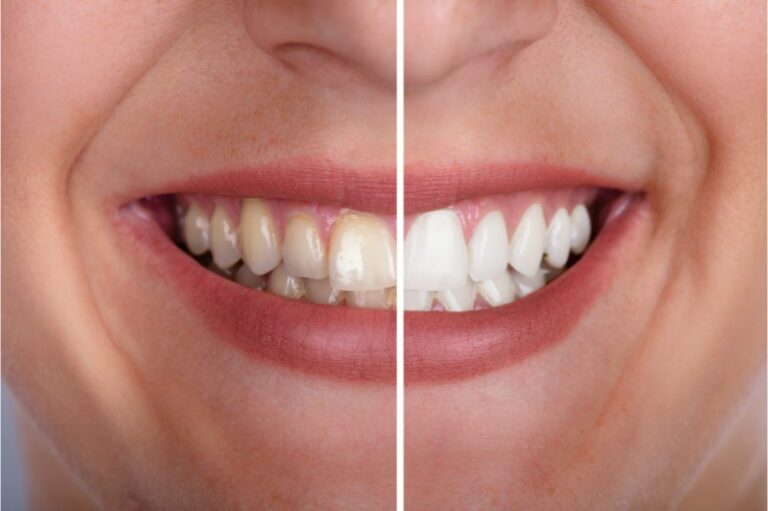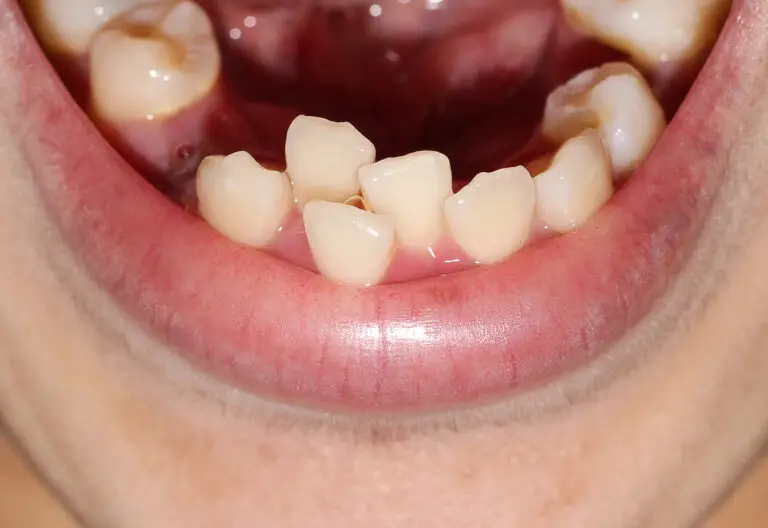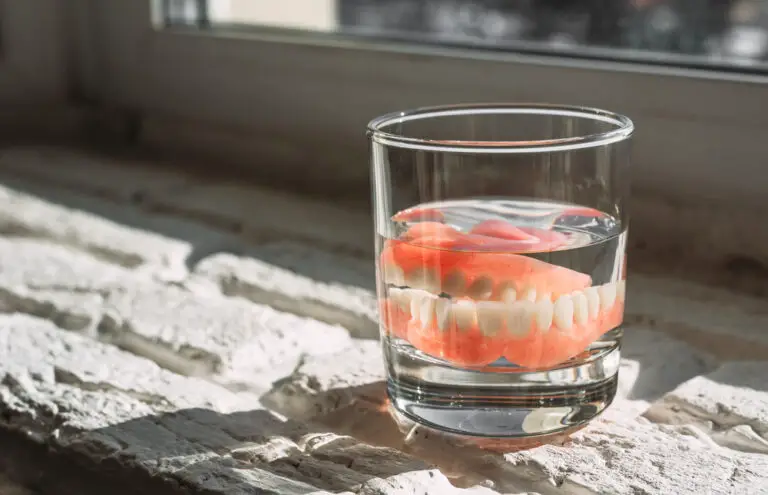If you’ve ever experienced a sinus infection, you know how uncomfortable it can be. The congestion and pressure can cause pain in your face, including your teeth. But can getting your teeth cleaned actually cause a sinus infection?
While it’s rare, there have been cases of bacterial infections after teeth cleaning procedures. In one case, a 57-year-old man in Pennsylvania presented with fever and pain in his upper body after a recent dental procedure. It’s important to note that this is a rare occurrence, and most people who get their teeth cleaned do not experience any complications.
However, there is a connection between sinus infections and tooth pain. Sinusitis, or inflammation of the sinuses, can cause pain in the upper back teeth. The sinuses are connected to the nasal cavity, and when they become inflamed, it can cause discomfort in the surrounding areas. So while getting your teeth cleaned may not directly cause a sinus infection, it’s important to be aware of the potential connection between sinusitis and tooth pain.
Understanding Sinus Infections
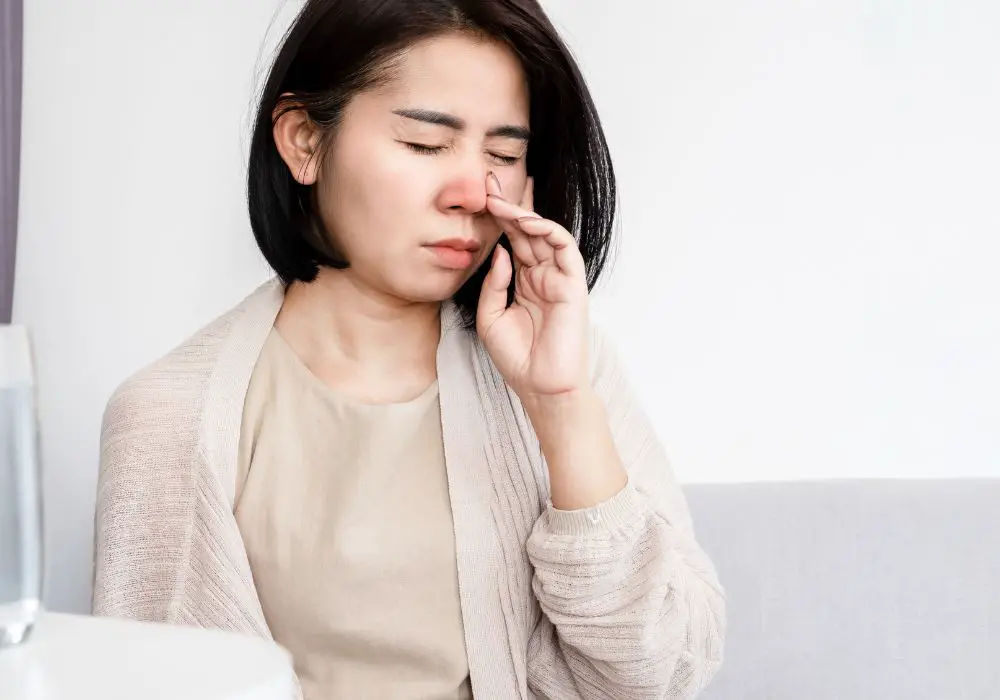
If you’ve ever experienced a sinus infection, you know how uncomfortable and painful it can be. Sinus infections, also known as sinusitis, occur when the tissue lining the sinuses becomes inflamed. This can cause a buildup of mucus and pressure, leading to symptoms such as facial pain, congestion, and headaches.
Causes of Sinus Infections
Sinus infections can be caused by a variety of factors, including:
- Viral infections: The common cold and flu viruses can cause inflammation in the sinuses.
- Bacterial infections: Certain bacteria can cause sinus infections, especially in people with weakened immune systems.
- Allergies: Allergic reactions to substances such as pollen, dust, and pet dander can cause sinus inflammation.
- Structural problems: Nasal polyps, a deviated septum, or other structural issues can block the sinuses and lead to infection.
Symptoms and Diagnosis of Sinus Infections
Symptoms of a sinus infection can vary depending on the severity of the inflammation and the cause of the infection. Common symptoms include:
- Facial pain and pressure
- Nasal congestion
- Headaches
- Postnasal drip
- Sore throat
- Fatigue
If you suspect that you have a sinus infection, it’s important to see a doctor for a proper diagnosis. Your doctor may perform a physical exam and ask about your symptoms. They may also order imaging tests, such as a CT scan, to get a better look at your sinuses.
In some cases, a sinus infection can be treated with over-the-counter medications and home remedies. However, if the infection is caused by bacteria, your doctor may prescribe antibiotics. Severe or chronic sinus infections may require more aggressive treatment, such as surgery to remove blockages or repair structural issues.
Overall, sinus infections can be uncomfortable and disruptive, but with proper treatment, most people are able to recover fully. By understanding the causes and symptoms of sinus infections, you can take steps to prevent them and seek timely treatment if you do develop an infection.
Link Between Dental Procedures and Sinus Infections
If you’ve ever had a sinus infection, you know how uncomfortable and painful it can be. But did you know that some dental procedures can actually cause sinus infections? In this section, we’ll explore the link between dental procedures and sinus infections and discuss specific procedures that can cause them.
How Dental Procedures Can Lead to Sinus Infections
Your sinuses are located close to your upper teeth and are separated by only a thin layer of bone. This means that dental procedures that involve the upper teeth can sometimes lead to sinus infections. For example, if a dental procedure causes an opening between the sinus and the mouth, bacteria can enter the sinus and cause an infection.
Additionally, dental procedures can cause inflammation in the sinuses, which can lead to a sinus infection. This is because the sinuses are lined with a thin layer of tissue called the mucous membrane, which can become inflamed and swollen in response to dental procedures.
Specific Dental Procedures That Can Cause Sinus Infections
Some dental procedures are more likely to cause sinus infections than others. Here are a few examples:
- Tooth extractions: If a tooth extraction involves the upper teeth, it can sometimes cause an opening between the sinus and the mouth, which can lead to a sinus infection.
- Dental implants: If a dental implant is placed too close to the sinuses, it can sometimes cause an opening between the sinus and the mouth, which can lead to a sinus infection.
- Root canals: Although rare, root canals can sometimes cause a sinus infection if the bacteria from the infected tooth spreads to the sinuses.
It’s important to note that while these procedures can sometimes cause sinus infections, it’s not a common occurrence. Your dentist will take steps to minimize the risk of infection, such as prescribing antibiotics or using sterile techniques during the procedure.
In summary, dental procedures can sometimes cause sinus infections due to the close proximity of the sinuses to the upper teeth. While this is not a common occurrence, it’s important to be aware of the potential risks and take steps to minimize them. If you experience symptoms of a sinus infection after a dental procedure, be sure to contact your dentist or healthcare provider right away.
Preventing Sinus Infections After Dental Procedures
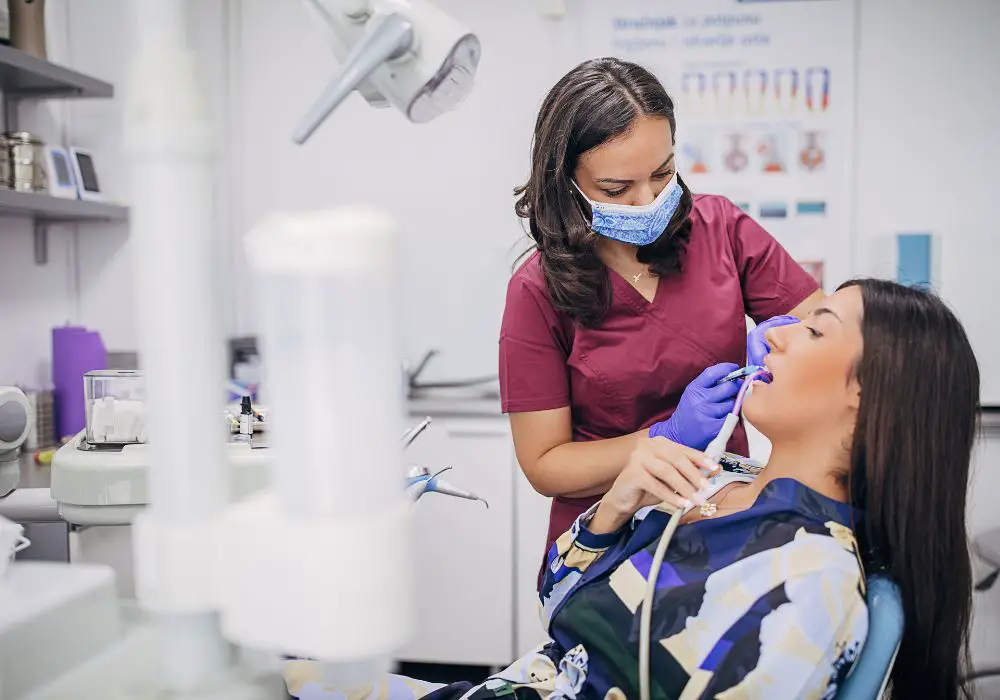
If you have experienced a sinus infection after getting your teeth cleaned, you may be wondering what you can do to prevent it from happening again. While it is not common for dental procedures to cause sinus infections, there are some precautions you can take before and after your procedure to reduce your risk.
Pre-Dental Procedure Precautions
Before your dental procedure, it is important to inform your dentist if you have a history of sinus infections or any other sinus-related issues. Your dentist may recommend that you take a decongestant or other medication before the procedure to help reduce inflammation and prevent sinus infections.
In addition, you should avoid any allergens or irritants that may cause sinus inflammation, such as cigarette smoke or dust. Make sure to get plenty of rest and stay hydrated to keep your immune system strong and healthy.
Post-Dental Procedure Care
After your dental procedure, it is important to follow your dentist’s instructions for post-procedure care. This may include taking antibiotics or other medications to prevent infection, as well as avoiding certain foods or activities that may irritate your mouth or sinuses.
To prevent sinus infections, make sure to keep your mouth and teeth clean by brushing and flossing regularly. You may also want to use a saline nasal spray or other sinus rinse to help flush out any bacteria or debris that may have entered your sinuses during the procedure.
If you experience any symptoms of a sinus infection, such as facial pain or pressure, congestion, or a headache, make sure to contact your dentist or healthcare provider right away. With proper care and precautions, you can reduce your risk of developing a sinus infection after dental procedures.
Myths and Misconceptions
When it comes to dental health, there are many myths and misconceptions that people believe. Here are a few common ones that you should be aware of:
Myth: Teeth cleaning can cause a sinus infection
There is a common misconception that getting your teeth cleaned can cause a sinus infection. However, there is no evidence to support this claim. Sinus infections are caused by bacteria or viruses that infect the sinuses, which are located in your skull. They are not caused by dental procedures.
Myth: Sugar causes cavities
While sugar can contribute to the formation of cavities, it is not the direct cause. Cavities are caused by bacteria that produce acid, which eats away at the enamel of your teeth. This bacteria feeds on sugar, so consuming sugary foods and drinks can increase your risk of cavities. However, it is not the sugar itself that causes cavities.
Myth: Bleeding gums are normal
Many people believe that bleeding gums are a normal part of brushing or flossing. However, this is not the case. Bleeding gums can be a sign of gum disease, which is caused by plaque buildup on your teeth. If left untreated, gum disease can lead to tooth loss and other health problems.
Myth: You only need to see a dentist if you have a problem
Some people believe that they only need to see a dentist if they have a problem with their teeth or gums. However, regular dental checkups are important for maintaining good oral health. Your dentist can detect problems early on and provide treatment before they become more serious. They can also clean your teeth and provide advice on how to care for your teeth and gums at home.
Remember, it is important to separate fact from fiction when it comes to dental health. If you have any questions or concerns, talk to your dentist. They can provide you with accurate information and advice based on your individual needs.
Expert Opinions and Studies
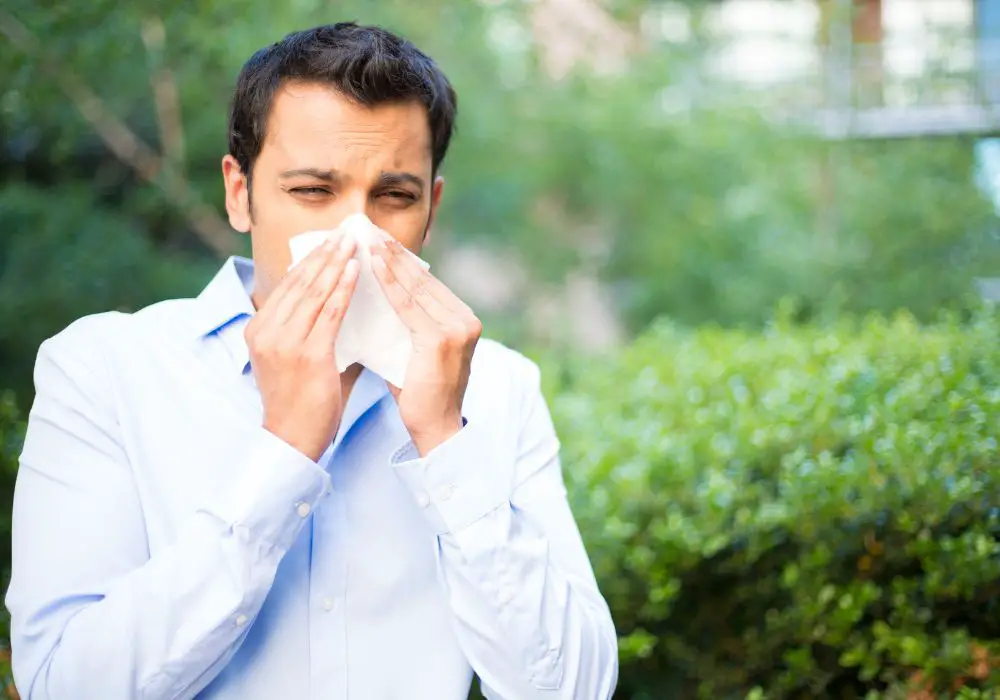
According to Mayo Clinic, a sinus infection (sinusitis) can cause a toothache, and pain in the upper back teeth is a common symptom with sinus conditions. The sinuses are pairs of empty spaces in your skull connected to the nasal cavity. If you have sinusitis, the tissues in those spaces become inflamed, often causing pain. An evidence review from 2012 estimated that as much as 40% of chronic maxillary sinus infections were due to dental infections. Older studies also suggest a possible relationship between dental procedures and sinus infections.
A rare but potentially life-threatening infection can occur after teeth cleaning. A 57-year-old man in Pennsylvania presented with complaints of fever and pain in the right upper body. The patient had a recent history of a dental procedure. The infection was caused by the bacteria Aggregatibacter actinomycetemcomitans, which is normally found in the mouth. The bacteria entered the bloodstream and caused a systemic infection. This case highlights the importance of proper infection control measures during dental procedures.
A deep teeth cleaning can remove a buildup of plaque and tartar on your teeth, reducing gum inflammation and improving gum health. Plaque is a sticky film that forms on teeth. It contains bacteria that can cause gum disease and tooth decay. If left untreated, gum disease can lead to tooth loss and even bone loss in the jaw. However, there is no evidence to suggest that getting your teeth cleaned can directly cause a sinus infection.
In conclusion, while there is a possible relationship between dental procedures and sinus infections, the risk is low. It is important to maintain good oral hygiene to prevent dental infections and to follow proper infection control measures during dental procedures. If you are experiencing symptoms of a sinus infection or toothache, it is important to consult a healthcare professional for proper diagnosis and treatment.
Frequently Asked Questions
Can dental procedures lead to sinus infections?
Yes, dental procedures can lead to sinus infections. Sinus infections occur when the sinuses become inflamed and filled with fluid, which can happen due to dental procedures such as teeth cleaning, fillings, or extractions. This is because the roots of the upper teeth are located close to the sinuses, and dental procedures can sometimes cause bacteria to enter the sinuses and cause an infection.
Can dental hygiene impact sinus health?
Yes, dental hygiene can impact sinus health. Poor dental hygiene can lead to gum disease, which can cause inflammation and infection in the sinuses. It is important to maintain good dental hygiene to prevent gum disease and other dental issues that can impact sinus health.
What are the symptoms of dental sinusitis?
The symptoms of dental sinusitis can include facial pain, pressure, and swelling, as well as congestion and a runny nose. You may also experience tooth pain or sensitivity, and a bad taste in your mouth. If you experience these symptoms after a dental procedure, it is important to see your dentist or doctor to determine if you have a sinus infection.
Can dental anesthesia cause sinus issues?
Yes, dental anesthesia can cause sinus issues. This is because the injection of anesthesia into the gums can sometimes cause the medication to enter the sinuses, leading to irritation and inflammation. However, this is a rare occurrence and most people do not experience any sinus issues from dental anesthesia.
Which teeth are connected to the sinuses?
The upper back teeth, specifically the premolars and molars, are the teeth that are most commonly connected to the sinuses. This is because the roots of these teeth are located close to the maxillary sinuses, which are located on either side of the nose.
Can a root canal cause a maxillary sinus infection?
Yes, a root canal can cause a maxillary sinus infection. This is because the roots of the upper back teeth are located close to the maxillary sinuses, and a root canal procedure can sometimes cause bacteria to enter the sinuses and cause an infection. If you experience symptoms of a sinus infection after a root canal, it is important to see your dentist or doctor to determine if you have a sinus infection.

